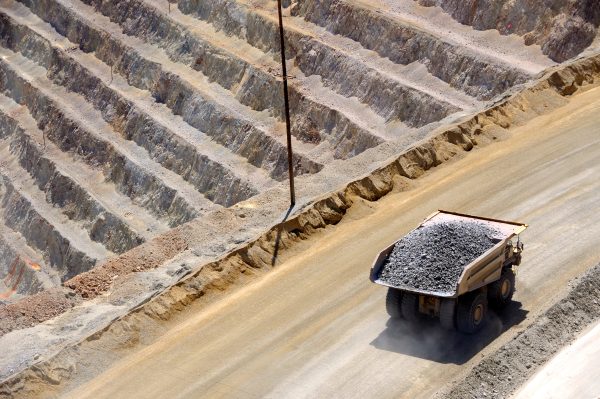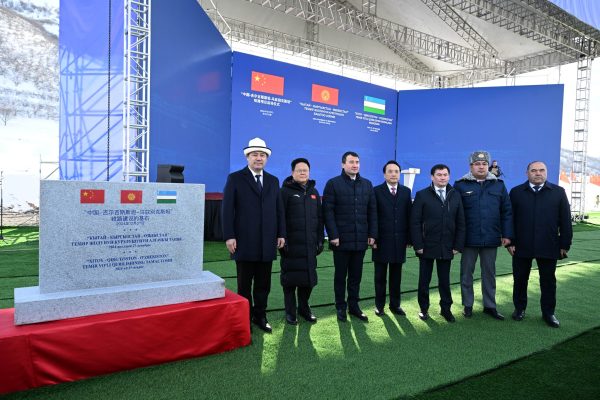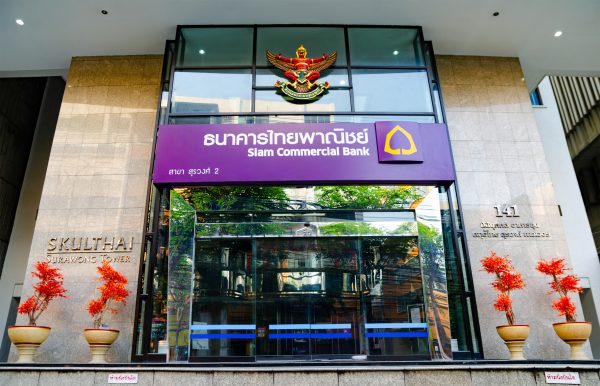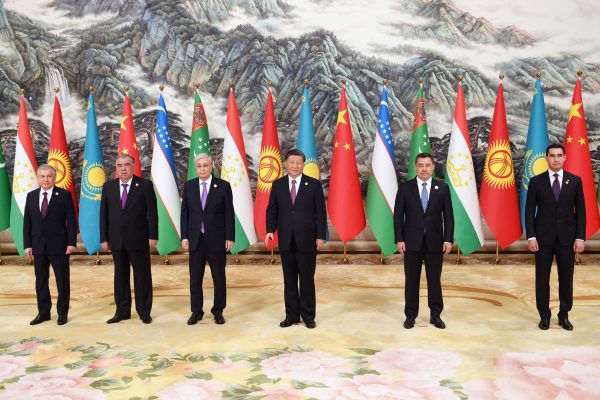The U.S. Treasury Department’s decision to slap sanctions on Gazprombank poses a potential major headache for Uzbekistan’s burgeoning mining industry, which until now has relied on the Russian lender to finance a $4.8 billion mine expansion set to nearly double the country’s copper production.
With Gazprombank being frozen out of the international payments system, Uzbekistan risks facing disruptions to its flagship Yoshlik mine expansion project while it rushes to identify alternative creditors or risk being caught up in secondary sanctions.
The U.S. designation of Gazprombank could also result in a major financial hit for European mining and engineering firms, banks, and state-backed export credit agencies active in Uzbekistan, which have thus far continued to transact with entities financed by Gazprombank.
Uzbekistan’s entire copper output originates from a vast mining complex close to Tashkent operated by the state-owned firm Almalyk MMC. The firm is currently overseeing the $4.8 billion Yoshlik expansion project, which by 2026 is planned to increase the mine’s copper output by 78 percent to 264,000 tonnes per year. Its gold output is set to increase by 50 percent to 800,000 ounces. The firm’s chairman has claimed the reforms will transform Almalyk MMC into “the leading copper ore processor in the world.”
Uzbekistan is reliant on Russia as its most important trading partner while remittances from Uzbek workers in Russia are the equivalent of 18 percent of the country’s total GDP. In May, Russian leader Vladimir Putin arrived in Tashkent for a two-day state visit during which the Yoshlik project was discussed as part of bilateral talks on further deepening economic ties between the two countries.
Russia’s interest in Yoshlik dates back to 2021 when Gazprombank and VEB.RF, Russia’s state owned development bank, agreed on $2 billion in deals with Almalyk MMC to finance the purchase of Russian mining equipment for use in the expansion. In 2022, an $800 million tranche of the deal with VEB.RF collapsed after the U.S., EU, and the U.K. placed the bank and its executive team on sanctions lists following Russia’s full-scale invasion of Ukraine.
With Gazprombank now also being subject to U.S. sanctions, Almalyk MMC faces the prospect of losing a second major backer to sanctions and will likely have to seek a refinancing deal to make up the funding shortfall and stay on the right side of U.S. sanctions.
A development strategy published by Almalyk MMC in October, before Gazprombank was sanctioned by the United States, made it clear that the Russian bank continued to be a major backer of the project, extending a $1 billion credit line, of which $670 million had already been used to purchase mining equipment from dozens of major European engineering exporters including Germany’s Thyssenkrupp, Switzerland’s ABB Group, and the U.K.’s Weir Group.
The U.S. decision to ramp up Russia sanctions by designating Gazprombank could result in a sanctions minefield and logistical challenges for Almalyk MMC, and could potentially affect European companies whose exports to Uzbekistan have been indirectly financed by the now-sanctioned lender.
Germany in particular has deep financial links with Almalyk MMC after KfW IPEX-Bank agreed in a deal with the firm in September 2023 to organize $2.55 billion in financing to continue work on the Yoshlik project. During German Chancellor Olaf Scholz’s visit to Uzbekistan in September, a first tranche of 144 million euro was agreed between Almalyk MMC and a consortium of German banks.
Unlike the U.S., the U.K. placed sanctions on Gazprombank much earlier, first in 2014 following Russia’s invasion of Crimea and then late in 2023 to prevent U.K. banks from processing payments relating to Gazprombank. But even after the U.K. sanctioned Gazprombank in 2014 it has continued to put its weight behind U.K. firms attempting to win contracts on the Yoshlik mine, despite the project being backed by the Russian lender.
In 2022 a U.K.-led delegation to Uzbekistan helped broker a 14.2 million euro export deal for equipment produced by the British engineering company Weir Group to be used on the Yoshlik project. Then in October 2024 the U.K.’s export credit agency, U.K. Export Finance, announced that it would risk public funds by guaranteeing a refinancing of the loan, this time provided by Spain’s Santander bank. It is possible that the collapse of the VEB.RF loan in 2022 prompted Almalyk MMC and Weir Group to refinance the deal with the support of the U.K. through its export credit agency.
For Almalyk MMC, failing to refinance the Yoshlik project to exclude Gazprombank could result in the mine owner being subject to secondary sanctions, effectively turning the firm into a pariah at the same time as it seeks to diversify its exports.





















Discussion about this post